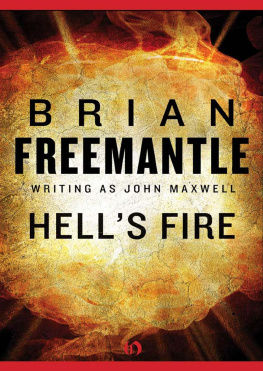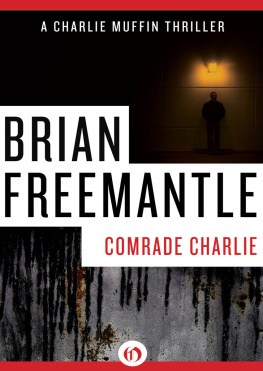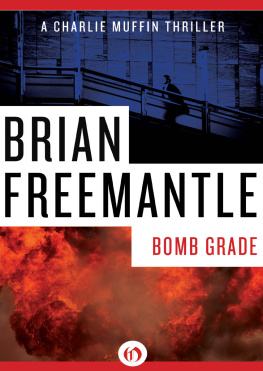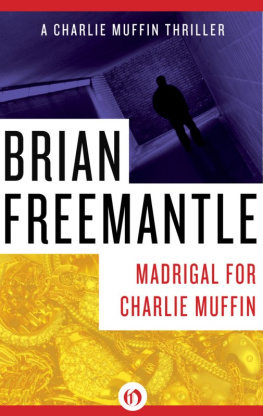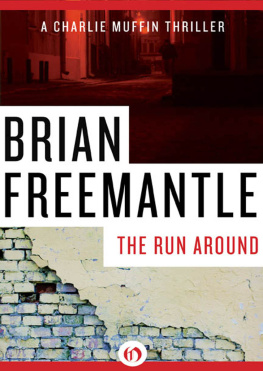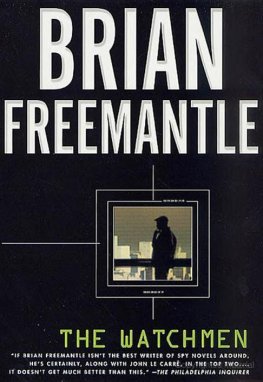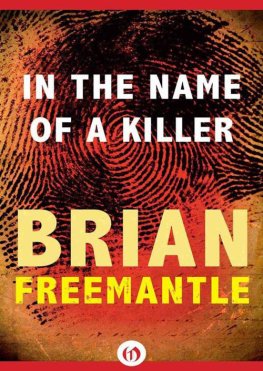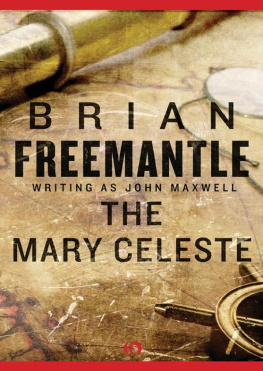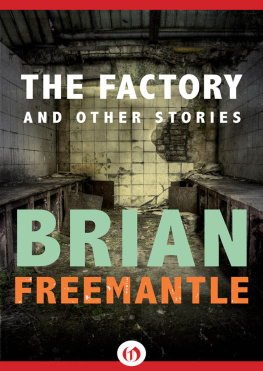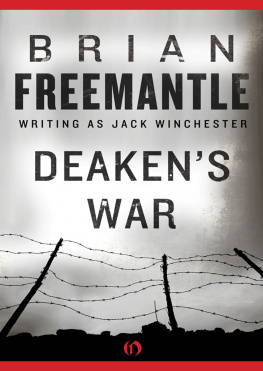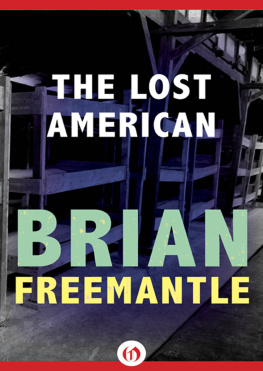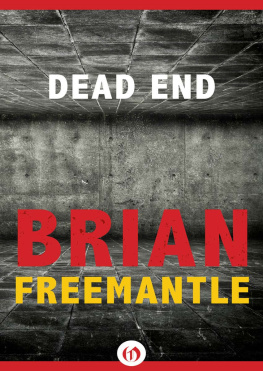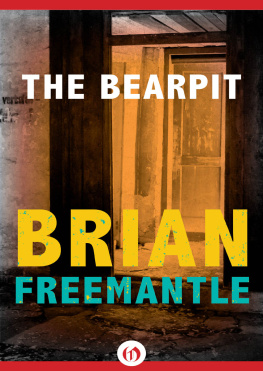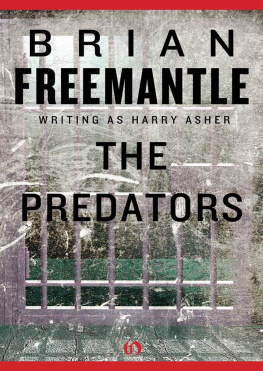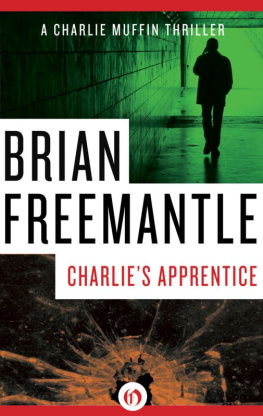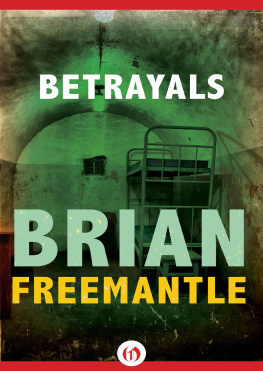Brian Freemantle - Hells Fire
Here you can read online Brian Freemantle - Hells Fire full text of the book (entire story) in english for free. Download pdf and epub, get meaning, cover and reviews about this ebook. year: 2011, publisher: Open Road, genre: Detective and thriller. Description of the work, (preface) as well as reviews are available. Best literature library LitArk.com created for fans of good reading and offers a wide selection of genres:
Romance novel
Science fiction
Adventure
Detective
Science
History
Home and family
Prose
Art
Politics
Computer
Non-fiction
Religion
Business
Children
Humor
Choose a favorite category and find really read worthwhile books. Enjoy immersion in the world of imagination, feel the emotions of the characters or learn something new for yourself, make an fascinating discovery.
- Book:Hells Fire
- Author:
- Publisher:Open Road
- Genre:
- Year:2011
- Rating:5 / 5
- Favourites:Add to favourites
- Your mark:
- 100
- 1
- 2
- 3
- 4
- 5
Hells Fire: summary, description and annotation
We offer to read an annotation, description, summary or preface (depends on what the author of the book "Hells Fire" wrote himself). If you haven't found the necessary information about the book — write in the comments, we will try to find it.
Hells Fire — read online for free the complete book (whole text) full work
Below is the text of the book, divided by pages. System saving the place of the last page read, allows you to conveniently read the book "Hells Fire" online for free, without having to search again every time where you left off. Put a bookmark, and you can go to the page where you finished reading at any time.
Font size:
Interval:
Bookmark:

Hells Fire
Brian Freemantle
writing as John Maxwell

For Peter and Romayne,
with much love
The law, sir! Damn the law: my will is the law and woe unto the man that dares to disobey it!
Captain William Bligh
Fletcher Christian
he was a gentleman: a brave man: and every officer and seaman on board the ship would have gone through fire and water to have served him
Edward Christian,
in an appendix to the published
text of the Bounty Court Martial,
October 1792
William Bligh
a man with integrity unimpeached, a mind capable of providing its own resources in difficulties, without leaning on others for advice, firm in discipline, civil in deportment and not subject to whimper and whine when severity of discipline is wanted to meet emergencies
Sir Joseph Banks,
Blighs patron, March 15, 1805
Acknowledgments
Pitcairn Island is one of the remotest inhabited spots in the world, a volcanic chip of land one mile across and two miles long, lying almost midway between Panama and New Zealand. The nearest commercial airstrip is 1,300 miles away in Tahiti. Shipping companies ask for bookings to be made with either Panama or New Zealand as the listed destination, so unsure are they that weather conditions will permit passengers to disembark.
I never imagined, therefore, that there would be any possibility of my reaching the island to research this book, much less that I would have the opportunity to live among people only fifth-generation descendants of Fletcher Christian and his mutineers.
That I did was due to the Royal Fleet Auxiliary and their vessel, the Sir Geraint. For making the trip initially possible, I thank Major Tony Dixon and Lt-Col. Peter Hicks, at the Ministry of Defence.
To the master of the Sir Geraint, Captain James Bailey, and his officers I will remain forever grateful for their friendship and hospitality during the two-month South Pacific voyage.
I shall always remember with gratitude and affection the welcome given to me by Pitcairn chief magistrate Ivan Christian and his wife Dobrey, with whom I lived. And appreciate the willing help I received from the islanders to the sometimes intrusive enquiries I made.
Pitcairn, of course, represents only a part of the study made for this book. The staff of the London Library responded to every request with an enthusiasm and cheerfulness that is a feature of any dealing with that institution. So, to them, a final thank you.
Introduction
This is a work of fiction, not history.
Fully aware of the irritation it may cause some historians of the period, I have made appear simultaneous events in the lives of Captain William Bligh and the man who led the mutiny against him on the Bounty, Lieutenant Fletcher Christian, which did, in fact, occur some years apart.
I have done this consciously for several reasons. For the fictional book it is intended to be, it makes for ease of narrative. I hope, too, that it enables me to highlight the conflicting characters of the two men.
And then it makes it possible to suggest the hidden secret that caused Fletcher Christian to rebel against the man who had been his friend, casting him and seventeen other crewmen adrift to what he could only have believed would be their certain death. For nowhere in the mass of surviving documents, records, first person accounts or on the island of Pitcairn itself is there a satisfactory answer to the question: why?
Bligh was not a tyrant, imposing the lash at the slightest infringement of regulations. He was an irascible nagger, certainly. He demanded a high standard aboard his ships and when it wasnt achieved, the lash came from his tongue, not the cat-o-nine-tails. Compared with other recorded punishments by contemporary captains, by eighteenth-century standards Bligh was soft-handed with his crew.
When, on the outward voyage of the Bounty, the crew deck became soaked by the storms of Cape Horn, he turned his own quarters over to his men so they could sleep dry. They didnt like it, but he made them eat a carefully considered diet, rightly recognising ahead of his time that scurvy came from a vitamin deficiency. He reached Tahiti after a ten-month voyage with only one suspected case of the illness, an unparalleled record for the time.
So why?
Would an educated man like Christian, whose brothers were barristers and whose family was steeped in law, have considered mass murder because he had fallen in love with a native girl in Tahiti? Or because Bligh had harangued him to the point of tears in front of the whole crew for stealing a coconut? These are the explanations offered by Bligh, in the existing log of his amazing, 3,600-mile survival voyage and then in a book he wrote of the incident.
The transcript exists of the court martial of ten mutineers arrested in Tahiti and arraigned at Portsmouth on September 12, 1792. The dialogue and evidence I have created for the participants is based on recorded fact, moving, I hope, towards my conclusion. That recorded fact comes very little from the court hearing, however. Not once were any of the witnesses or prisoners asked to suggest a cause for the insurrection.
Bounty midshipman Edward Young followed Christian to Pitcairn, fomented a civil war on the island between the natives and the mutineers and then, in an act of dying contrition after all but one of the mutineers were dead, wrote a detailed account of events leading up to the mutiny and of their subsequent existence on one of the loneliest islands in the world.
Today that account is, according to the islanders I have met and interviewed, still hidden somewhere on Pitcairn, secreted upon the orders of the last surviving mutineer, Jack Adams. Before he died, however, Adams made the record available to one of the British sea captains who had located their island sanctuary and the man copied sections from it. In his journal, Young confessed to his part as agent provocateur in the mutiny and wrote at length of their early, savage years on Pitcairn.
Missing from the document, however, was any acceptable explanation for why Fletcher Christian went before dawn on that April morning in 1789 to rouse Captain Bligh at cutlass point with the words: I am in hell.
One man knew. Fletcher Christian told him.
A few minutes before sailing for the last time from Tahiti to form what is today Britains smallest colony, Christian took aside midshipman Peter Heywood. Before they pulled too far away, Edward Young, standing nearby, heard Christian begin to talk of the reason for my foolishness. The Portsmouth court martial exonerated Heywood from any complicity in the crime, accepting his story that he was carried away against his will. Heywood rose to the rank of captain and swore an affidavit that in 1808, walking along Fore Street, Plymouth, he saw a figure he recognised. He called out Christians name and the man turned, showing himself to be the mutiny leader. The man fled and although he gave chase, Heywood lost him.
Heywood was quite willing to provide these and other details for a book written about the Bounty uprising by a relative, Lady Belcher. About only one thing did he refuse to talk that secret conversation with Christian on the greyish-black Tahitian sand.
Could Christian have escaped from Pitcairn?
There are several accounts that other vessels came upon the mutineers before the officially accepted discovery in February 1808, when the Boston-registered whaler
Font size:
Interval:
Bookmark:
Similar books «Hells Fire»
Look at similar books to Hells Fire. We have selected literature similar in name and meaning in the hope of providing readers with more options to find new, interesting, not yet read works.
Discussion, reviews of the book Hells Fire and just readers' own opinions. Leave your comments, write what you think about the work, its meaning or the main characters. Specify what exactly you liked and what you didn't like, and why you think so.

